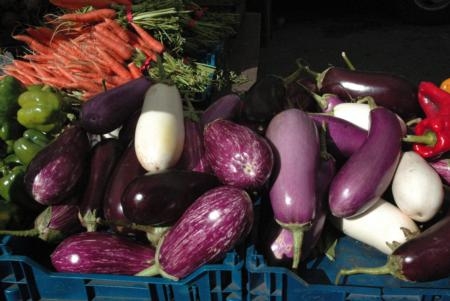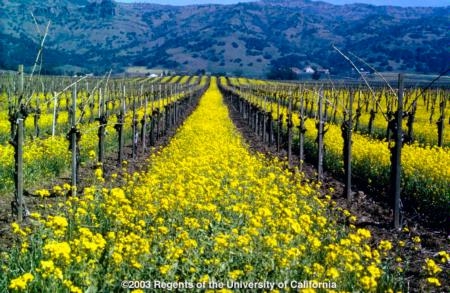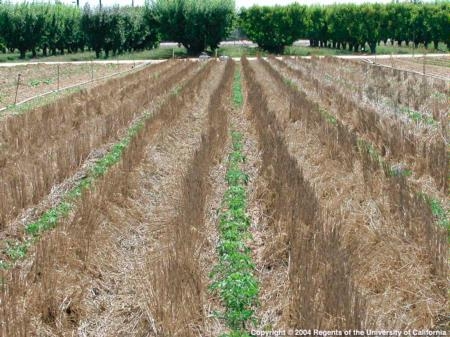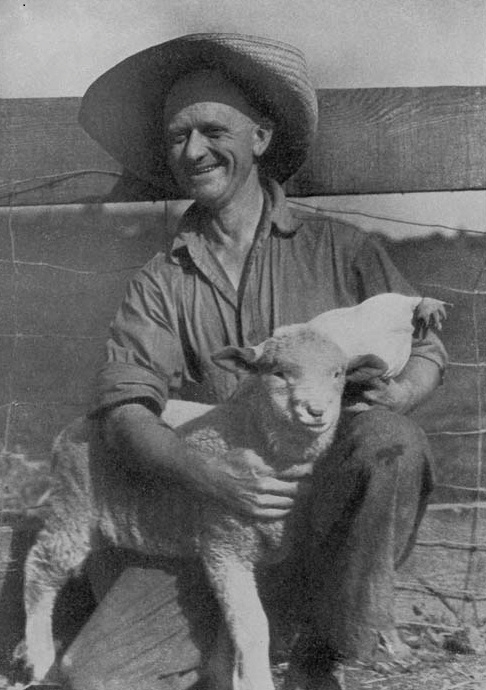
Posts Tagged: food policy
California Agriculture – Spring 2012
The spring edition of California Agriculture has a varied collection of articles. You can read about solutions for nitrate in drinking water, protecting California forests form catastrophic fire, agricultural advances, and the history and legacy of the Morrill Act.
Articles include:
- No-tillage and high-residue practices reduce soil water evaporation
- Research and adoption of biotechnology strategies could improve California fruit and nut crops
- Regulatory status of transgrafted plants is unclear
- New quality index based on dry matter and acidity proposed for Hayward kiwifruit
- Honoring 150 years of accessible higher education
- For 150 years, UC science and agriculture transform California
- UC’s land-grant mission fuels nation’s growth, prosperity
- Report seeks solutions for nitrate in drinking water
- UC leads effort to protect California forests from catastrophic fire
- Conservation tillage achieves record acreage, yields
The Morrill Act
UC Cooperative Extension’s Rose Hayden-Smith is a practicing U.S. Historian. In the current issue of California Agriculture, Rose explains the Morrell Act, and subsequent changes, in an entertaining and inspiring way.
Signed into law during the Civil War, the Morrill Act and related legislation helped to transform our country. While the transformation was nationwide, the benefit to California’s future was incredible. And it still is. Many of the programs and research made possible from a collection of laws passed a 150 years ago touch our lives day in and day out.
To learn more about the Morrill Act, please see UC’s land-grant mission fuels nation’s growth, prosperity or For 150 years, UC science and agriculture transform California. UC land grants: A photo history can be found here.
Food Compass
The Know Your Farmer, Know Your Food Compass is a valuable resource for food producers, community leaders and consumers.
This online multi-media resource provides seamless access to programs designed to support local food systems under the Know Your Farmer, Know Your Food Initiative. This effort combines the work of 17 USDA agencies and is producing some powerful results.
From the USDA,
“The Know Your Farmer, Know Your Food Compass is a valuable resource documenting the innovation, entrepreneurship and impact of local food systems across the country. It [Know Your Farmer, Know Your Food Initiative] is driving job growth, keeping farmers and on the land, and keeping wealth in rural communities. We invite you to dive deep into this new tool, and be inspired by the stories it tells and the ideas it can spur for you and your community.”
Much of the information at the site is shared in a narrative format, providing viewers with an in-depth, inside look into the nation’s local food systems.
Topics include:
- The what and why of local foods
- What is Know Your Farmer?
- Local food infrastructure
- Stewardship and local food
- Local meat and poultry
- Farm to institution
- Healthy food access
- Careers in agriculture
- Local food knowledge
- Local food: Not Just USDA
- Case studies
- Conclusions
- Grants, loans and other resources
 Strong local food systems are good for producers, consumers, and communities.
Strong local food systems are good for producers, consumers, and communities.
Ventura County Agricultural Summit 2012
Presented by the Ventura County Ag Futures Alliance last month’s agricultural summit set out to increase connections and support between the local agricultural industry and the larger community.
Approximately 250 community stakeholders (farmers, ranchers, distributors, buyers, chefs, policy makers, public health advocates, community planners, and others) attended the Making Connections: How the Local Food Movement Can Support Ventura County Agriculture themed event.
Agriculture is an important part of our local economy. Like any other industry, agriculture has its share of challenges and opportunities. Shared dialog between producers and consumers within our area provides a wonderful bridge to reduce and minimize challenges while finding ways to increase awareness and collaboration. Attendees discussed distribution systems, public health, land use, childhood obesity, urban encroachment, pesticides, labor needs, water, and the need for fresh food education and marketing,
Additional information about the summit, and the issues discussed, can be found at the Ag Innovations Network website, this Ventura County Star article, and this radio piece by KCLU.
Support for this program came from many in the community. Sponsors include the UC Thelma Hansen Fund. The purpose of the Hansen Fund is to support and maintain University research and extension activities for the sustainability and benefit of agriculture and natural resources in Ventura County. A complete list of donors can be found here.

UC’s Sustainable Agriculture Research and Education Program (SAREP)
SAREP is a statewide program within the University of California’s Agriculture and Natural Resources division. From their site:
“SAREP provides leadership and support for scientific research and education in agricultural and food systems that are economically viable, conserve natural resources and biodiversity, and enhance the quality of life in the state's communities. SAREP serves farmers, farmworkers, ranchers, researchers, educators, regulators, policy makers, industry professionals, consumers, and community organizations across the state."
Program areas are:
- biologically integrated farming systems
- community food systems
- crop/livestock production
- organic farming information
- methyl bromide alternatives
Related resources, reports, funding opportunities and much more can be easily accessed from this well laid out site.



